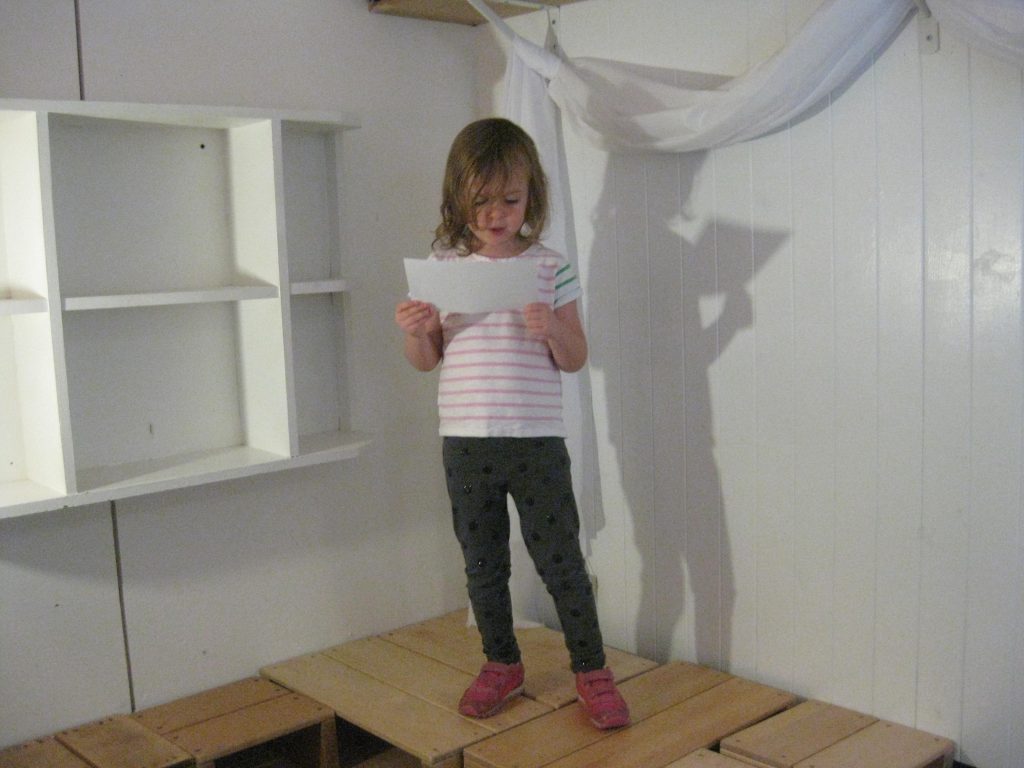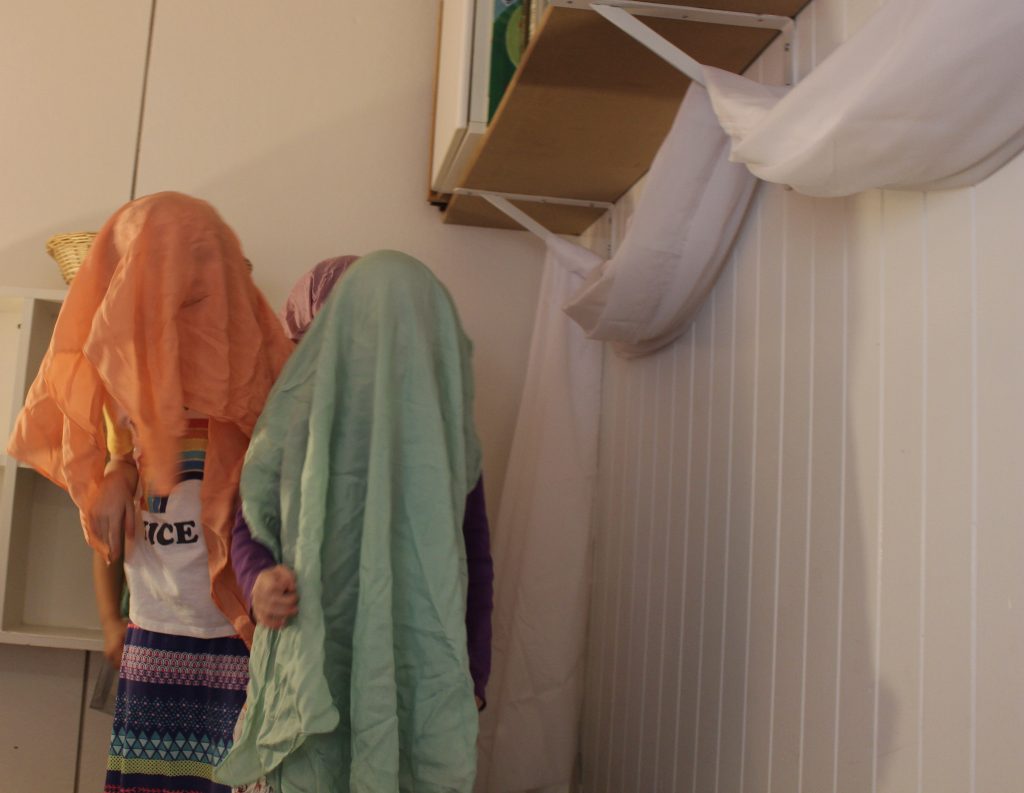We’ve recently noticed a desire to perform, to be in the spotlight, to tell a story.
“Dramatic play permits children to fit the reality of the world into their own interests and knowledge. One of the purest forms of symbolic thought available to young children, dramatic play contributes strongly to the intellectual development of children.” -Jean Piaget

Creating a simple space in which the children can devise a stage using large hollow blocks, silk scarves and even a spotlight, we wondered just how the children might interpret theatre in their own way.

“You might notice that some of the persons are the same persons but as ghosts!”
-Margot
Repeated “shows” have happened with and without audiences. The children take turns being on the stage and there are many directives voiced. We are curious to hear what the children know about acting, creating a story and the idea of theatre.
“When we’re just practicing, we keep it on (the spotlight).”
-Ada
“And off when we aren’t.”
-Sylvie
“We’re practicing our steps.”
-Sylvie
“A director puts on the show.”
-Ada
“They start it all. I’m the director. We tell you when it starts.”
-Sylvie
As we continue exploring the process of dramatic play in this open environment, we wonder about the many ways we will see the children’s growing awareness of themselves in relation to others and the stories that will unfold.
"The director is not in the show." -Quinn
"Yes, they tell the people what to do." -Sylvie
"We're reading our lines." -Ada
"The last is the Rainbow Dance." -Margot

